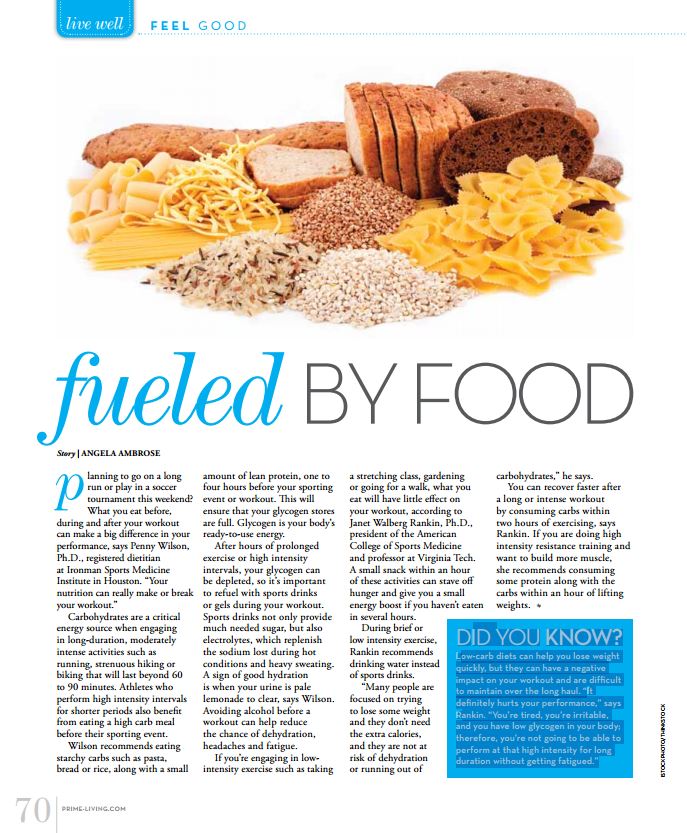Planning to go on a long run or play in a soccer tournament this weekend?
What you eat before, during and after your workout can make a big difference in your performance, says Penny Wilson, Ph.D., registered dietitian at Ironman Sports Medicine Institute in Houston. “Your nutrition can really make or break your workout.”
Carbohydrates are a critical energy source when engaging in long-duration, moderately intense activities such as running, strenuous hiking or biking that will last beyond 60 to 90 minutes. Athletes who perform high intensity intervals for shorter periods also benefit from eating a high carb meal before their sporting event.
Wilson recommends eating starchy carbs such as pasta, bread or rice, along with a small amount of lean protein, one to four hours before your sporting event or workout. This will ensure that your glycogen stores are full. Glycogen is your body’s ready-to-use energy.
After hours of prolonged exercise or high intensity intervals, your glycogen can be depleted, so it’s important to refuel with sports drinks or gels during your workout. Sports drinks not only provide much needed sugar, but also electrolytes, which replenish the sodium lost during hot conditions and heavy sweating. A sign of good hydration is when your urine is pale lemonade to clear, says Wilson. Avoiding alcohol before a workout can help reduce the chance of dehydration, headaches and fatigue.
If you’re engaging in low intensity exercise such as taking a stretching class, gardening or going for a walk, what you eat will have little effect on your workout, according to Janet Walberg Rankin, Ph.D., president of the American College of Sports Medicine and professor at Virginia Tech. A small snack within an hour of these activities can stave off hunger and give you a small energy boost if you haven’t eaten in several hours.
During brief or low intensity exercise, Rankin recommends drinking water instead of sports drinks.
“Many people are focused on trying to lose some weight and they don’t need the extra calories, and they are not at risk of dehydration or running out of carbohydrates,” he says.
You can recover faster after a long or intense workout by consuming carbs within two hours of exercising, says Rankin. If you are doing high intensity resistance training and want to build more muscle, she recommends consuming some protein along with the carbs within an hour of lifting weights.
Published in Prime Living
Did you know?
Low-carb diets can help you lose weight quickly, but they can have a negative impact on your workout and are difficult to maintain over the long haul. “It definitely hurts your performance,” says Rankin. “You’re tired, you’re irritable, and you have low glycogen in your body; therefore, you’re not going to be able to perform at that high intensity for long duration without getting fatigued.”
